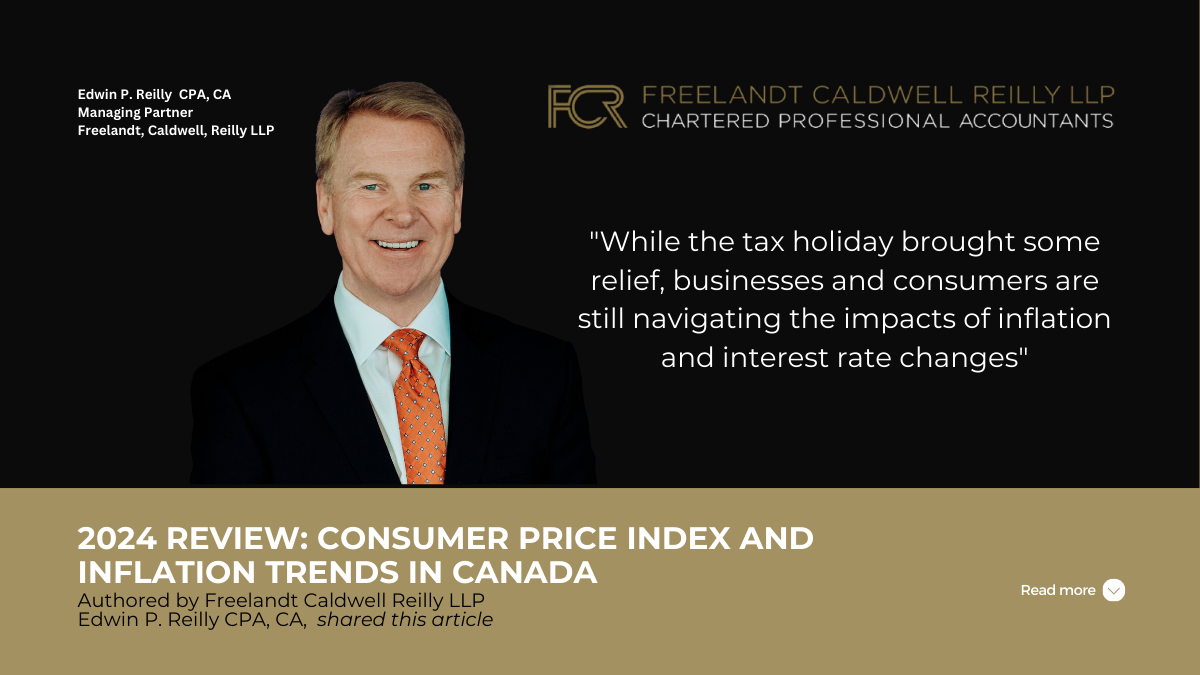
Knowledge Hub
Insights to inform and inspire
Discover the latest in accounting and business with our curated articles, news, and insights. Ideal for professionals and enthusiasts alike, our hub offers valuable, up-to-date information to guide your financial decisions.
Latest insights
-
Your Business News
2024 Review: Consumer Price Index and Inflation Trends in Canada
Unpack the significant economic trends of Canada in 2024, from the impact of food inflation and high interest rates on the CPI, to the effects of the tax holiday on consumer goods. Discover how these factors are shaping the inflation outlook for the country amidst ongoing trade policy uncertainty.
-
 Your Business News
Your Business NewsThe Role of Business in Addressing Modern Slavery
Modern slavery remains a critical challenge in today’s global economy, with businesses under increasing pressure to ensure their supply chains are free from exploitative labor practices. This article delves into the evolving regulatory landscape, the significant risks of non-compliance, and strategic steps companies can take to combat forced labor while integrating social responsibility into their…
-
 Your Business News
Your Business NewsCanada’s Fall Economic Statement 2024: A Review
The 2024 Fall Economic Statement proposes several changes to personal and business tax laws, aimed at addressing inflation and assisting businesses and individuals. The government plans to expand the capital gains rollover on business investments, which will allow small businesses to access capital more easily. Additionally, the statement confirms a GST/HST tax break for holiday…
-
 Your Business News
Your Business NewsSuccessfully Navigating the GST/HST Tax Holiday: A Business Perspective
The proposed GST/HST tax holiday in Canada, introduced under Bill C-78, offers businesses a temporary opportunity to boost sales and provide consumer relief by zero-rating specific supplies. Spanning December 14, 2024, to February 15, 2025, this initiative poses both opportunities and challenges for businesses eager to capitalize on the tax benefits. Explore how businesses can…
Resources
-
 Tools and Calculators
Tools and CalculatorsTaxable vs. Tax Advantaged Investments Calculator
How taxes are applied to an…


